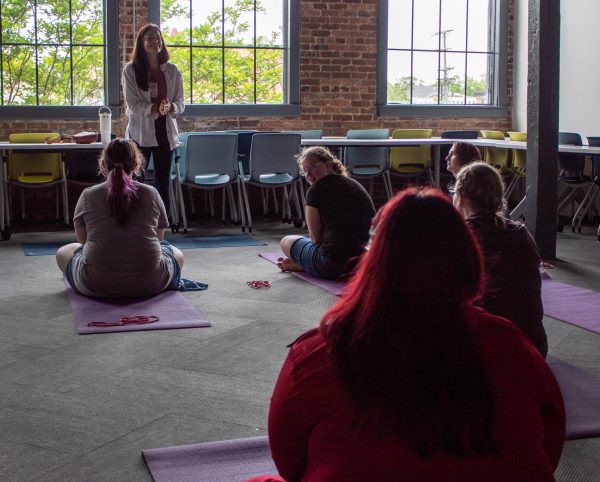University offers new sustainability class
November 20, 2014
The university is exploring possibilities and implementing practices toward an Earth System Sustainability major as the first Sustainable Earth class is being offered spring 2015.
The campus-wide conversation on sustainability and broad engagement began with the first-ever UNA Sustainability Conference sponsored by the Department of Physics and Earth Science in September.
“Global and national efforts to identify sustainability issues and solutions are underway as universities and science academies embed this attitudinal shift into university cultures in the context of this rapid momentum,” said Department Chair of Physics and Earth Science Brenda Webb.
People are turning to “green” alternatives and with initiated “green” habits around campus, UNA is ready to quickly capture this moment of opportunity, Webb said.
Earth Science 247: Sustainable Earth is offered Tuesdays and Thursdays 11 a.m. to 12:15 p.m. during the spring semester. Students must also register for a lab section of the course scheduled for Wednesdays 1-2:50 p.m.
Students must have taken ES 131: Earth Science or ES 133: Earth Science Systems, or be enrolled in one of those classes during the spring semester to qualify.
Webb said she expects the proposed major and minor will kick off at the start of the next calendar year.
“I think it is pretty important to know about sustainability,” said sophomore Colton McCormick. “Considering the direction our climate is going in, we’re all going to have to learn how to go green eventually.”
Webb said students who want to take the Sustainable Earth class do not have to be science majors.
This class meets part of the science requirements for general education, meaning that it would count the same as a general biology or earth science course, she said.
“This class will allow students, both science and non-science, to explore how to become a community that practices sustainability,” she said. “The course is designed to introduce all students to authentic, dynamic events of resource uses, problems and solutions on local, national and global levels.”
McCormick said the class provides students a class option dealing with a subject that affects the way people live.
“It seems like a lot of people take easy science classes that have information they’ll rarely, if ever, use in their lives,” he said. “On the other hand, this would be a very practical class to take.”
Webb said most perspectives on sustainability employ three major areas: society, environment and economics — making the concept of sustainability inherently cross-disciplinary.
She also said UNA expanding its leadership role and becoming “a proactive model and resource for sustainable practice engaging the campus and broader communities” fits in today’s changing attitudes toward sustainability.
Sophomore Emily Ownby said she think students can get the same information through other science course offerings.
“If you want to learn about the environment, take geography,” Ownby said. “It just seems like a waste.”
Webb said students will gain enhanced opportunities in the local job market and on a national stage.
“The administrative leadership, faculty and staff all express an emerging and exciting interest and willingness to pursue exploring possibilities for sustainable practices on campus,” she said.










